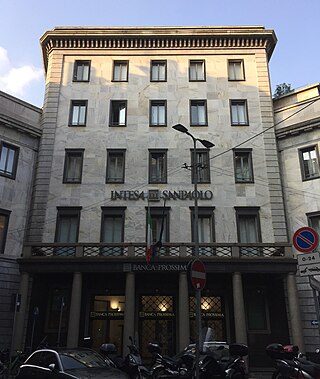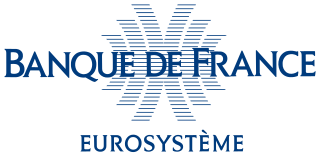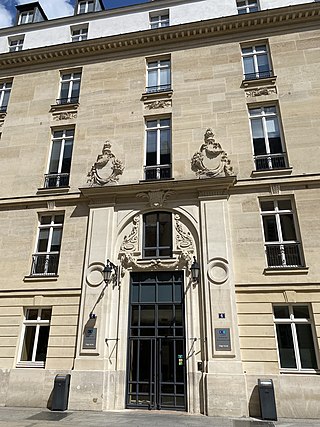Related Research Articles

Banco Ambrosiano was an Italian bank that was established in 1896 and collapsed in 1982. The Vatican-based Institute for the Works of Religion, commonly known as the Vatican Bank, was Banco Ambrosiano's main shareholder. The Vatican Bank was accused of funnelling covert United States funds to the Polish trade union Solidarity and to the Nicaraguan Contras through Banco Ambrosiano.

Banking in Switzerland dates to the early 18th century through Switzerland's merchant trade and over the centuries has grown into a complex and regulated international industry. Banking is seen as emblematic of Switzerland and the country has been one of the largest offshore financial centers and tax havens in the world since the mid-20th century, with a long history of banking secrecy and client confidentiality reaching back to the early 1700s. Starting as a way to protect wealthy European banking interests, Swiss banking secrecy was codified in 1934 with the passage of a landmark federal law, the Federal Act on Banks and Savings Banks. These laws were used to protect assets of persons being persecuted by Nazi authorities but have also been used by people and institutions seeking to illegally evade taxes, hide assets, or to commit other financial crime.

The Bank of France is the French member of the Eurosystem. It was established by Napoleon Bonaparte in 1800 as a private-sector corporation with unique public status. It was granted note-issuance monopoly in Paris in 1803 and in the entire country in 1848, issuing the French franc. Charles de Gaulle's government nationalized the bank in 1945 after several governance changes in the meantime. It remained France's sole monetary authority until end-1998, when France adopted the euro as its currency.

Credit Suisse Group AG is a global investment bank and financial services firm founded and based in Switzerland as a standalone firm but now a subsidiary of UBS. According to UBS, eventually Credit Suisse will be fully integrated into UBS but while the integration is not complete both banks are operating separately. Headquartered in Zürich, as a standalone firm it maintained offices in all major financial centers around the world and provided services in investment banking, private banking, asset management, and shared services. It was known for strict bank–client confidentiality and banking secrecy. The Financial Stability Board considered it to be a global systemically important bank. Credit Suisse was also a primary dealer and Forex counterparty of the Federal Reserve in the United States.

The Swiss National Bank is the central bank of Switzerland, responsible for the nation's monetary policy and the sole issuer of Swiss franc banknotes. The primary goal of its mandate is to ensure price stability, while taking economic developments into consideration.

The Crédit Industriel et Commercial is a bank and financial services group in France, founded in 1859. It has been majority owned by Crédit Mutuel, one of the country's top five banking groups, since 1998, and fully owned since 2017.

Banque Cantonale de Genève (BCGE) is a limited company established under Swiss public law, resulting from the merger of the Caisse d'Épargne de la République et Canton de Genève and the Banque Hypothécaire du Canton de Genève. It is one of the 24 cantonal banks.

Hottinger Group is an international wealth management business headquartered in London providing family office, Investment banking and other associated financial services. Hottinger is known as one of the first private banks, created on 1 August 1786 by the Hottinguer family.

Banque Bonhôte & Cie is a Swiss private bank founded in 1815 in Neuchâtel. It is active in the wealth and asset management sector.
Ten referendums were held in Switzerland during 1999. The first four were held on 7 February on changes to the eligibility for membership of the Federal Council (approved), constitutional regulations on organ transplantation (approved), a popular initiative "house ownership for everyone" (rejected) and an amendment to the federal law on spatial planning (approved). The fifth was held on 18 April on a new Swiss Federal Constitution, which was approved.
Éric Stauffer is a Swiss politician from Homberg. He chaired the Genevan Citizens Movement from 2008 to 2012.

The Lombard Odier Group is an independent Swiss banking group based in Geneva. Its operations are organised into three divisions: private banking, asset management, and IT and back and middle office services for other financial institutions. In 2022, the bank had total client assets of CHF 296 billion, which makes it one of the biggest players in the Swiss private banking sector.

Bordier & Cie is a Swiss private banker founded in 1844 in Geneva and active in wealth management for private clients. It is the last French-speaking private banker in Switzerland, headed by three partners with unlimited responsibility on their own assets. The institution holds a banking license in Switzerland, Turks and Caicos Islands and Singapore and has branches in the United Kingdom, France and Uruguay.

Banque Cantonale Vaudoise (BCV) is the cantonal bank of the Swiss Canton of Vaud. Headquartered in Lausanne, it is Vaud's biggest bank by balance sheet. BCV is a universal bank providing retail banking, corporate banking, wealth management, and trading services.
Mirabaud is a Swiss private bank based in Geneva, Switzerland. Mirabaud provides services in wealth management, asset management and brokerage to private clients and institutions around the world.

The Swiss Private Bankers Association is a Swiss trade association made up of banking institutions that meet the legal definition of a private banker according to Swiss law. It is based in Geneva, Switzerland, and currently has six members.

The Banque Worms was a merchant bank founded by Hypolite Worms in 1928 as a division of Worms & Cie. The banking services division provided financing services to other branches of Worms & Cie, which were involved in ship building, shipping and the coal trade. During World War II (1939–45), Worms & Cie was placed under German supervision, and was subject to intense scrutiny after the war on suspicions of collaboration. The banking services division was spun off as the independent Banque Worms et Cie in 1964. The bank was nationalized in 1982 by the socialist government of François Mitterrand. The bank engaged in risky real estate investments, and lost most of its value. After being re-privatized, it was owned in turn by two insurance groups, then was acquired by Deutsche Bank. The bank was wound down in 2004.

Mario El-Khoury is a Lebanese-Swiss engineer, cited as a Digital Shaper by the economic magazine Bilanz in 2020, and among the 100 most important personalities of the Swiss economy in 2019 and 2020.
Withholding tax is a tax levied at source in Switzerland since 1944 on capital income, lottery winnings and certain insurance benefits.
References
- 1 2 Garessus, Emmanuel (2008-07-31). "Les grandes affaires économiques de la Suisse (2/6). Le scandale de Chiasso, ou l'histoire d'une banque dans la banque". Le Temps (in French). ISSN 1423-3967 . Retrieved 2023-09-02.
- 1 2 "La grande leçon du scandale Texon". SWI swissinfo.ch (in French). 2002-04-23. Retrieved 2023-09-02.
- 1 2 Kuntz, Joëlle (2008-10-11). "Il était une fois. Une initiative contre "les abus du pouvoir des banques"". Le Temps (in French). ISSN 1423-3967 . Retrieved 2023-09-02.
- ↑ Bellanger, François (1991). Les règles de déontologie comme moyen d'action de l'Etat à la lumière de la Convention de diligence des banques (in French). Basel: Helbing & Lichtenhahn. pp. 117–213.
- ↑ Fazioli, Michele (18 June 1977). "Scandale de Chiasso : retombées politiques. Le président du gouvernement acculé à la démission". 24 heures . p. 7.
- ↑ "Deuxième journée du procès-fleuve de Chiasso. L'affaire Crocci-Torti en vedette". 24 heures . 30 May 1979. p. 9.